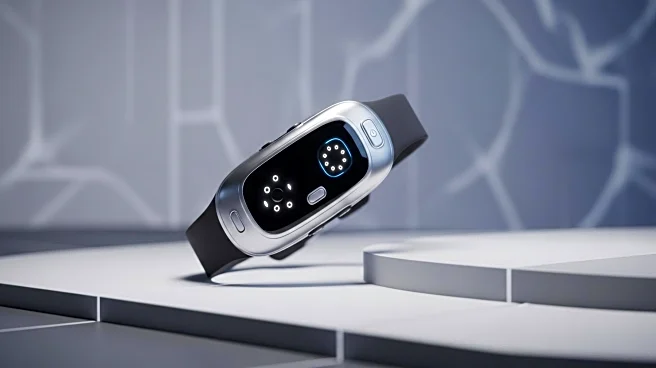What's Happening?
Northwestern University researchers have developed a lifestyle medicine program utilizing three wearable sensors to capture detailed eating behaviors. The study, published in npj Digital Medicine, involved 60 adults with obesity wearing a necklace, wristband, and body camera to track meal-related moods and contexts. The findings identified five distinct overeating patterns, paving the way for personalized interventions. The sensors aim to address unconscious habits contributing to obesity, offering a roadmap for tailored behavior-change programs.
Why It's Important?
This development is significant as it represents a shift towards personalized healthcare solutions for obesity, a major public health issue in the U.S. By identifying specific overeating patterns, the technology could lead to more effective interventions, potentially reducing obesity rates and associated healthcare costs. The approach highlights the integration of technology in healthcare, offering a more nuanced understanding of eating behaviors and their triggers, which could benefit millions struggling with weight management.
What's Next?
The research team plans to collaborate with clinicians to pilot trials of personalized behavior-change programs based on the study's findings. This could lead to the development of new diagnostic tools and treatment plans tailored to individual needs, enhancing the effectiveness of obesity interventions. The success of these trials could influence future healthcare policies and practices, promoting the adoption of technology-driven solutions in managing chronic health conditions.
Beyond the Headlines
The ethical implications of using wearable technology to monitor personal behaviors must be considered, particularly regarding privacy and data security. The study's approach to respecting privacy through selective recording is a step forward, but broader discussions on data use and consent are necessary as such technologies become more prevalent.











